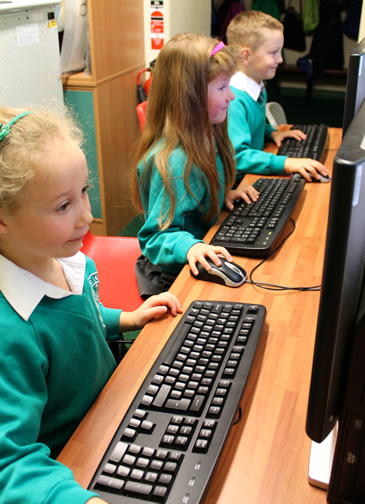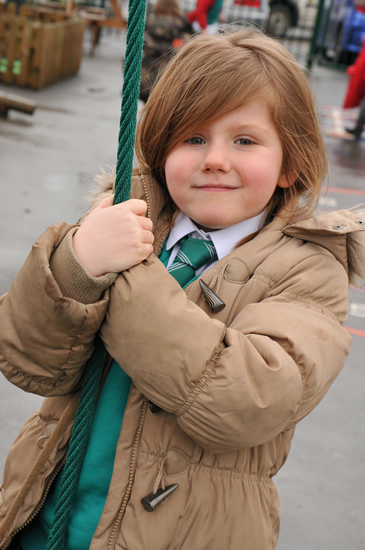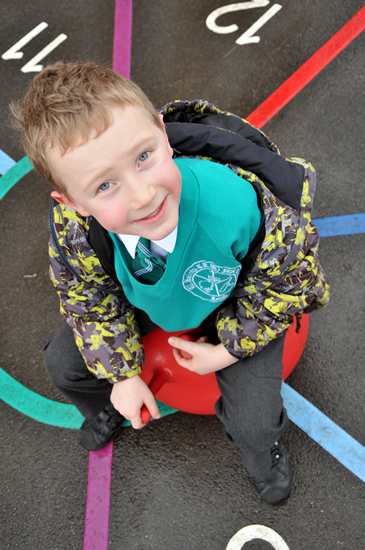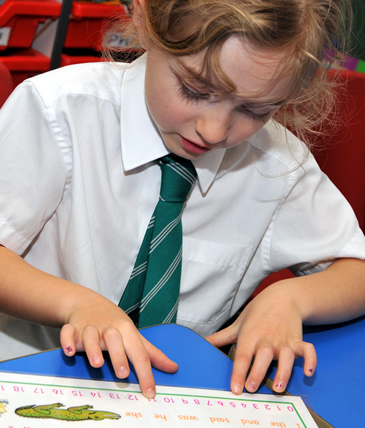
Curriculum Aims and Objectives and Assessment
A new National Curriculum was introduced into schools in September 2014. Teaching in school spent the previous year preparing for this and becoming familiar with the new end of year expectations and planning a curriculum that meets the needs of our children and reflects the local community and context. The curriculum has been planned to link together the different subject areas and objectives for each class where possible over a two year rolling programme. We know that children learn best when they can make connections between the different areas of learning and this approach makes the subjects more relevant and interesting for them. Our school ethos and values are based upon Christian values, which in turn reflect unique fundamental British Values.
During the course of 2014, as staff begin teaching the new curriculum, they will be refining and improving it using feedback from pupils, parents and other staff.
Aims and Objectives
At All Saints our aims and objectives for the curriculum provided are:-
* To offer a broad and balanced curriculum which provides access for each child to all the
National Curriculum subjects, Religious Education and extra-curricular and enrichment
activities;
* To establish a partnership between home, school and church and to value the
participation of parents as educators;
* To liaise and collaborate with other First Schools in our cluster and with local Middle
Schools in order to ensure a smooth transition for the children when they leave us.
We aim for each child:
* To develop an enjoyment for learning and become lifelong independent learners;
* To be challenged and stimulated and thus develop an enquiring mind;
* To develop fully their academic, social, physical and spiritual potential.
The Curriculum
The school aims to provide a stimulating learning environment, to be concerned with the personal development of individual pupils and to help them to gain the maximum benefit from their experiences in school. We hope that during their time at our school the children will develop lively and enquiring minds, become confident in their own ability, develop independence with their learning, become aware of the variety and beauty of the natural world and learn the skills that are necessary to communicate. We aim to foster an enjoyment in learning, a sense of curiosity, pride in the quality and accuracy of their work as well as determination and initiative. We expect the children to learn to work co-operatively within a group, to become sensitive to the feelings of others, to develop self-esteem and a sense of moral values. Children are taught in mixed-ability classes. They are in the care of a class teacher who has responsibility for their education and welfare. Teachers have support from teaching assistants or from adult who volunteer to assist. Our studies are those outlined by the National Curriculum.
The Foundation Stage Curriculum is organised into six areas of learning:-
Personal, Social and Emotional Development
This area of learning looks at making relationships, a child’s self-confidence and self-awareness and managing feelings and behaviour.
Physical Development
This area focuses on moving and handling as well as health and self-care.
Communication and Language
This area includes listening and attention, understanding and speaking.
Literacy
This area includes reading and writing.
Mathematics
This area covers numbers, shape, space and measures.
Understanding of the World
This area of learning looks at people and communities, the world and technology.
Expressive Arts and Design
This area of learning explores and uses different media and materials and encourages being imaginative.
The children work towards the Early Learning Goals in all of these areas set out in the Foundation Profile.
KS1 & KS2
Literacy
It is of the utmost importance that children should learn to communicate effectively in speech and writing and to listen with understanding. Consequently, we place considerable emphasis on reading, writing, spelling, listening and speaking. Children have the opportunity to take home the books that they are reading at school. Parental support is vital in this area. Our reading scheme is based on the Oxford Reading Tree. The children also participate in regular phonics sessions.
Numeracy
The acquisition of basic numeracy skills is essential for the development of mathematical understanding. The Abacus Evolve Scheme provides the framework for our numeracy teaching. In addition, a wide range of practical and investigative work is undertaken using a variety of contexts and cross curricular links.
Science
Children are encouraged, through practical experiences, to explore some of the basic principles of scientific discovery. They learn about living things, materials and their properties and begin to make generalisations about physical phenomena.
Design and Technology
Children learn a variety of skills to enable them to design and make things. The emphasis is on focussed practical tasks and identify a purpose for their work. The children learn to manage the whole process themselves from the design and making of a product to its evaluation where they review and suggest improvements.
Information Communication Technology
Pupils are taught to use ICT equipment and software confidently and purposefully. The school is well-equipped with interactive whiteboards, computers and other technological equipment in each classroom. The School has its own ICT network room linked to the classrooms. ICT skills are applied across the curriculum.
History
Children are encouraged to develop an awareness of the past. They start by learning more about themselves and this eventually leads on to a study of important episodes in Britain’s past and of ancient civilisations. They learn to research using a wide and varied set of resources.
Geography
The children explore their local environment. This is then extended to other localities in Britain and the wider world. They look at both physical and human features of the world around them and learn to explain how they can make an impact.
Art
We hope to foster the children’s aesthetic appreciation and to develop their creative skills using a variety of media. The children study the work and styles of a range of artists and use these to produce their own artistic work across the curriculum.
Modern Foreign Languages (MFL)
French is taught in school as agreed in partnership with the Uttoxeter Pyramid of Schools. In MFL our aim is to ensure the children understand & respond to spoken & written language; speak with increasing confidence, fluency and spontaneity, continually improving the accuracy of their pronunciation & intonation, write at varying length for different purposes and audiences and develop an appreciation of the language.
Music
The children are introduced to a variety of musical experiences including singing, dancing, and instrumental work and listening to music. This area of learning is linked to the various events we put on such as Harvest, Nativity and Easter services as well as other musical performances we put on through the year.
PHSE (personal, Social and Health Education) and Citizenship
Our children are encouraged to develop the knowledge skills and understanding they need to lead confident, healthy and independent lives and to become active and responsible citizens.
The school was awarded the healthy schools status in 2007. The award of the status is reflected in our ethos culture and school policies.
Physical Education
Athletics, dance, gymnastics and games form a major part of this work. The school is committed to providing a full weekly entitlement of PE. In EY’s & Key Stage One and reception the children use the ‘leap into life’ programme and the older children have a comprehensive programme to cover all skills and abilities. The school is an active member of the East Staffordshire School Sports programme. Years 2, 3 and 4 swim weekly at Thomas Alleynes High School.
Religious Education
As a Church of England voluntary controlled school we follow the County’s Agreed Religious Education Syllabus. Each school day we have collective worship. Local clergy visit the school and lead acts of worship each week. It is the aim of the school that the children should become familiar with their Christian heritage whilst having some knowledge of the religious beliefs of other faiths. We endeavour to establish a reasoned set of attitudes, values and beliefs.
Assessment without Levels
Click Here
The new National Curriculum in English Primary Schools - A guide for Parents'
Click Here
Supporting your Child at Home
Click Here
Phonics for Parents'
Click Here




